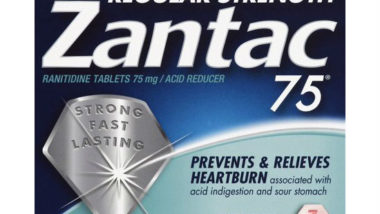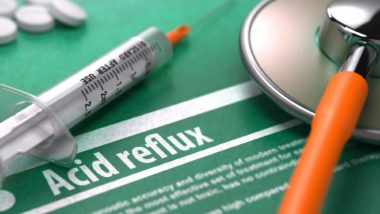Top Class Actions’s website and social media posts use affiliate links. If you make a purchase using such links, we may receive a commission, but it will not result in any additional charges to you. Please review our Affiliate Link Disclosure for more information.
According to a recent lawsuit, drug manufacturing companies hid the link between PPI meds and kidney disease to the detriment of consumers.
Plaintiff Sharon H. allegedly used PPI drugs including Dexilant and Nexium between 2008 and 2017. She later developed chronic kidney disease which led to end-stage renal disease requiring treatment with dialysis. According to Sharon’s lawsuit, her PPI-induced kidney disease was a result of long term PPI drug use.
About Proton Pump Inhibitors
Proton pump inhibitor (PPI) drugs are medications commonly prescribed to treat GERD, acid peptic disease, acid reflux, stomach ulcers, and other conditions afflicting the stomach. The drugs work to manage stomach acid levels by inhibiting the active acid pumps in the stomach – thereby reducing the amount of hydrochloric acid in the stomach. The mechanism of action irreversibly disables a system of the cells lining the stomach that secretes the hydrochloric acid involved in the digestive process, according to Vivo Pathophysiology. Medical scientists believe that this reduction in stomach acid harms the beneficial gut flora, which thrives in a low pH environment – and is part of the body’s defenses against numerous diseases.
PPI drugs have been widely commercially successful and have been one of the top ten selling forms of prescription medication since 2003. Around 21 million Americans have used a prescription PPI since 2009, although this number does not include those who used over the counter versions of the drugs. Overall, PPIs like Nexium and Prilosec are among the most widely prescribed medications in the world.
PPIs have been prescribed for patients who do not really need them, or whose conditions could be treated with a change of diet and lifestyle or, in the case of acid reflux caused by hiatal hernia, surgery. according to the Mayo Clinic.
There are some serious cases in which treatment with a PPI is necessary, such as Barrett’s Esophagus. Even for these patients, however, researchers strongly recommend that PPIs not be taken for more than three months. Research has shown that the risks of health problems increase significantly the longer a patient takes the medication. PPIs have also been prescribed for patients who do not really need them.
Although PPI drugs are widely used, Sharon argues that the use of a PPI and kidney disease are linked despite the risks rarely being mentioned.
The Scientific Evidence
In 1992, a group of researchers from the University of Arizona Health Sciences Center published the first paper linking treatment with a PPI and kidney disease in The American Journal of Medicine. Since then, countless studies have linked PPI and kidney disease conditions including acute kidney injury, chronic kidney disease, and late-stage renal disease.
Both chronic and late-stage kidney disease involve decreased function of the kidneys. This results in insufficient filtering of the blood, leading to high levels of toxins in the blood. When these toxins build up, they can reportedly cause a variety of complications including nerve damage, heart disease, kidney failure, and death.
The health dangers of PPI medications don’t stop there. Over the past several years, long-term use of these medications has been linked to a wide range of diseases, including stomach cancer, pediatric colon infections, dementia, geriatric pneumonia, and accelerated aging. Plaintiffs in recent lawsuits claim that the manufacturers knew, or should have known about these risks and failed to warn patients and the medical community.
Plaintiff Allegations
Sharon argues that PPI drugs fail to perform as expected – regardless of the link between PPI and kidney disease. According to the PPI lawsuit, long term use of the medications can cause a more severe case of acid reflux as a “rebound” reaction.
“Because PPI Products work by preventing the acidification of the stomach’s contents by blocking the proton pumps of the stomach, the body may react by compensating with increased production of gastrin, a hormone that stimulates secretion of gastric acid,” her PPI lawsuit claims. “Consequently, when users discontinue treatment with PPI Products, their bodies’ acid production increases beyond their pre-PPI treatment levels.”
Sharon argues that, because PPI drugs such as Nexium fail to perform as expected and pose unnecessary risks, the drugs are defective. She also argues that drug manufacturers had a duty to warn consumers of the true nature of their products, but instead concealed these facts in order to protect the substantial profits that PPI drugs provide.
Sharon brings claims of strict product liability, design defect, failure to warn, negligence, breach of warranties, negligent misrepresentation, fraud, fraudulent misrepresentation, and fraudulent concealment.
The PPI and Kidney Disease Lawsuit is Case No. 2:18-cv-17134 and is part of the PPI MDL, In re: Proton Pump Inhibitor Products Liability Litigation (No. II), Case No. 2:17-md-02789-CCC-MF, in the U.S. District Court for the District of New Jersey.
If you or someone you know took PPI meds and suffered from Nexium stomach cancer or were hospitalized for Nexium kidney problems, you may qualify to file a Nexium lawsuit to pursue compensation for medical bills, pain and suffering, and more. See if you qualify for a Nexium lawsuit settlement by filling out the short form on this page. It’s absolutely free to participate, so act now!
ATTORNEY ADVERTISING
Top Class Actions is a Proud Member of the American Bar Association
LEGAL INFORMATION IS NOT LEGAL ADVICE
Top Class Actions Legal Statement
©2008 – 2024 Top Class Actions® LLC
Various Trademarks held by their respective owners
This website is not intended for viewing or usage by European Union citizens.
Get Help – It’s Free
Join a Free Prilosec, Nexium Lawsuit Investigation
If you qualify, an attorney will contact you to discuss the details of your potential case at no charge to you.
PLEASE NOTE: If you want to participate in this investigation, it is imperative that you reply to the law firm if they call or email you. Failing to do so may result in you not getting signed up as a client or getting you dropped as a client.
E-mail any problems with this form to:
Questions@TopClassActions.com.
Oops! We could not locate your form.













